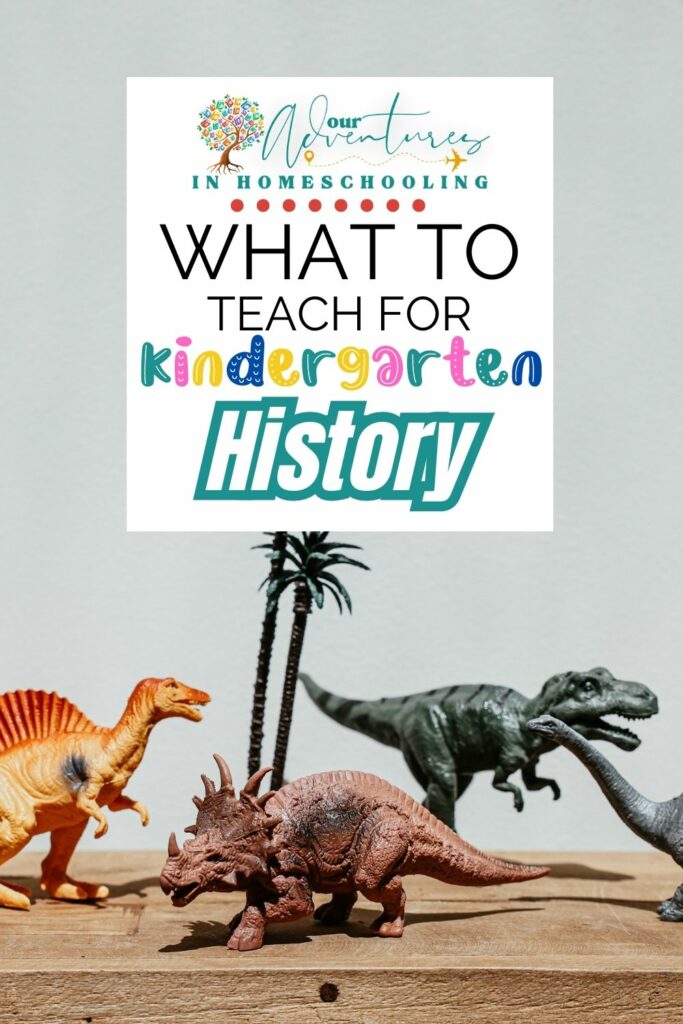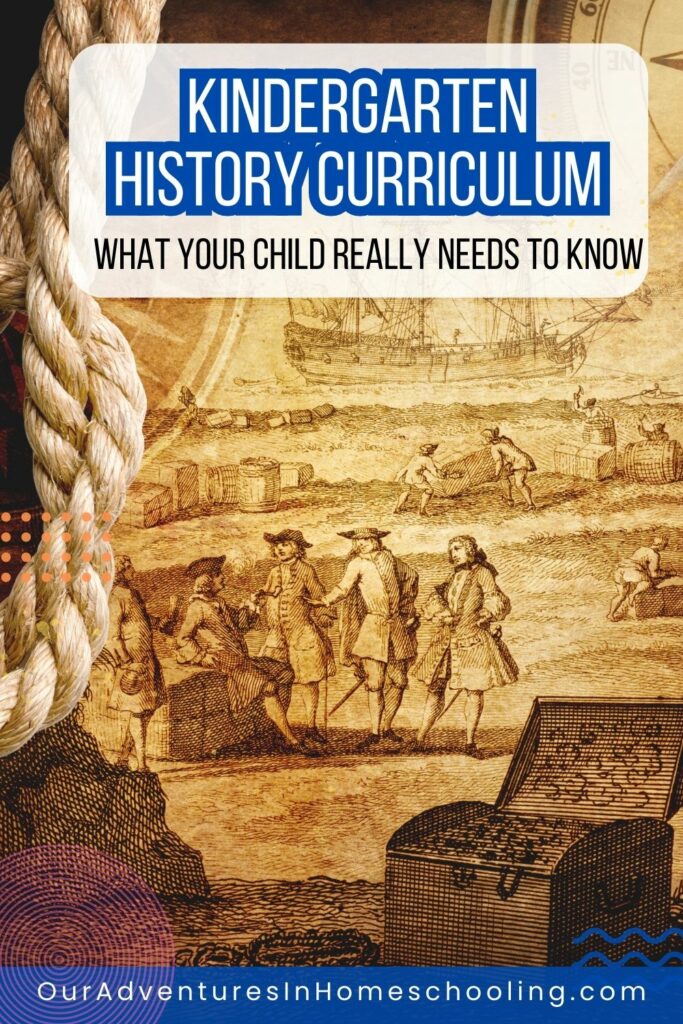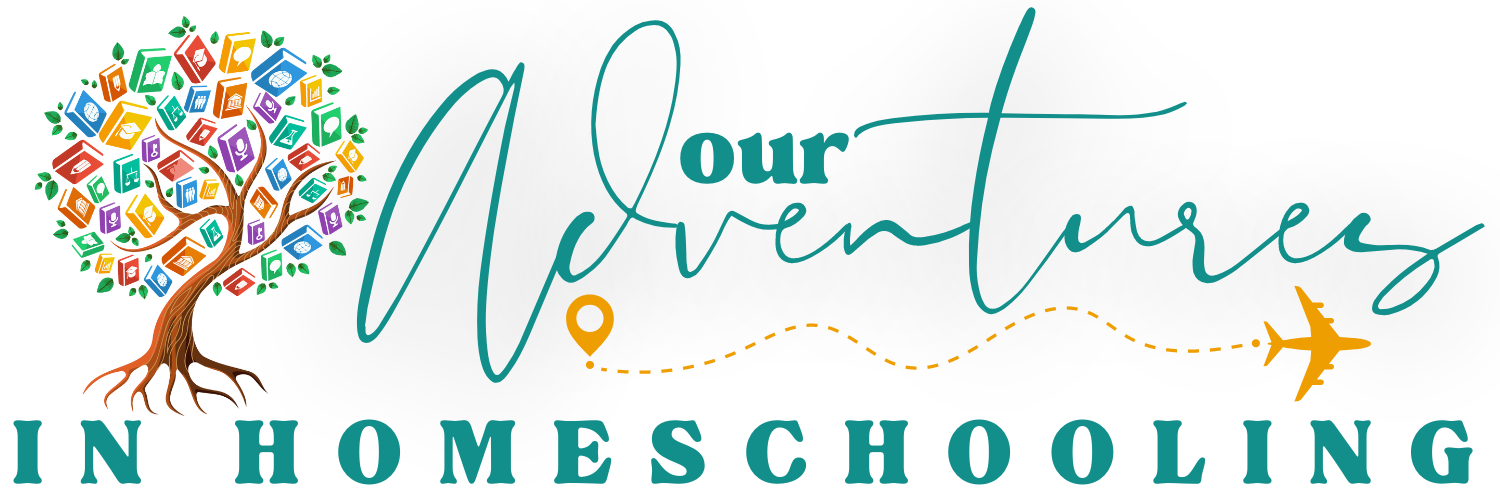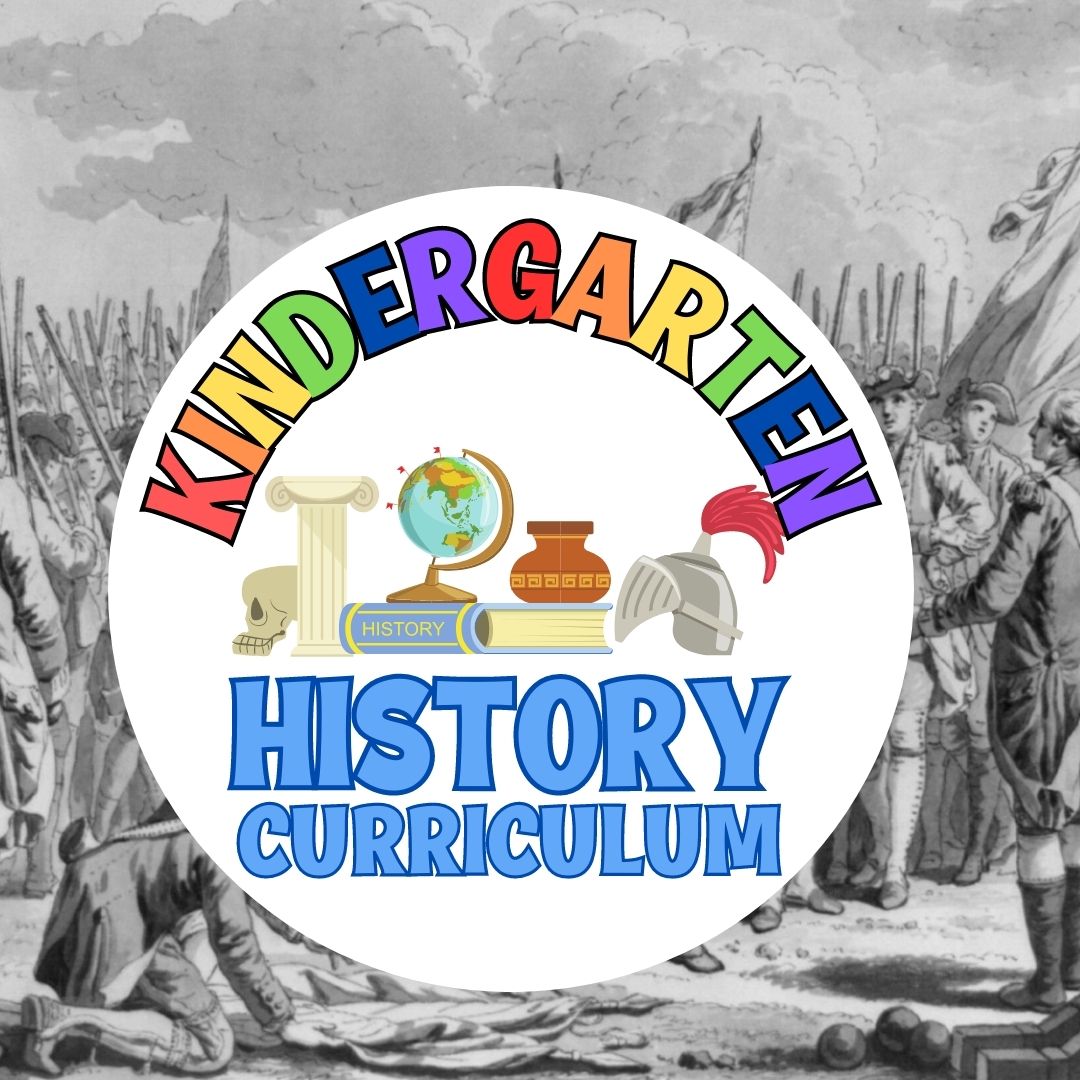Kindergarten is a crucial stage in a child’s education, serving as a foundation for their academic journey. While subjects like language, mathematics, and science often take precedence in early education, the inclusion of a well-rounded kindergarten history curriculum can significantly benefit young learners.
In this blog post, we will explore the significance of integrating history into kindergarten education and discuss popular curricula, along with strategies to make learning history an engaging and enjoyable experience for young minds.




Keep in mind, Kindergarten is all about fostering a love of learning in your child. A typical homeschool day should consist primarily of play and only have about an hour of “book work”. Learn more about a typical kindergarten homeschool schedule and set yourself up for a year of fun and learning!
Why You Should Focus On Social Studies Instead of History in Kindergarten
Social studies encompasses various disciplines, including history, geography, culture, and civic responsibilities. By emphasizing social studies over history alone, your child’s kindergarten education can foster a broader understanding of the world.
It helps children develop crucial skills such as critical thinking, empathy, and an appreciation for diverse cultures and perspectives.
Kindergarten Should Include Stories About History
Children are naturally drawn to stories, and incorporating historical narratives into the kindergarten curriculum can captivate their imaginations. Historical stories help children connect with the past, making it relatable and tangible.
By incorporating age-appropriate stories about historical figures, events, and cultures, kindergarteners can develop a sense of time, historical empathy, and an early appreciation for the significance of the past.




What History Should A Kindergarten Student Learn
In kindergarten, history lessons should focus on fundamental concepts rather than comprehensive historical timelines. Topics could include community history, family history, famous individuals, national symbols, and cultural celebrations.
By focusing on personal connections and familiar environments, children can develop a sense of identity and belonging, building a solid foundation for future historical knowledge.
In Kindergarten, a history curriculum can consist solely of library books and won’t cost you a thing. Take your little one to the library and pick out books they want to learn more about. Mini biographies are a lot of fun to read as is studying about any upcoming holidays.
Popular Kindergarten History Curriculums are Available
Numerous educational resources offer comprehensive history curricula tailored specifically for kindergarten students.
Some popular options include “Time Travelers: Exploring Our Past,” “Kids Discover Online,” and “History Pockets: Ancient Civilizations.” These curricula provide age-appropriate content, interactive activities, and visual aids to engage kindergarteners in an exciting historical learning experience.
I would only go this route if you feel like your child would respond favorably to a full curriculum. Remember, kindergarten is all about cultivating a LOVE of learning in your child.
Pros and Cons of Using a History Curriculum
Using a structured history curriculum in kindergarten has its pros and cons. On the positive side, a curriculum ensures that students receive a well-rounded education, introduces them to important historical concepts, and provides a systematic approach to learning history.
However, it is crucial to strike a balance between structured curriculum and allowing for open-ended exploration, ensuring that children have opportunities for creativity and independent thinking.
Ways to Make Learning History Fun in Kindergarten
To make history learning enjoyable and engaging for kindergarteners, educators and parents can employ various strategies.
Incorporating hands-on activities, such as creating historical crafts, organizing pretend play scenarios, and going on field trips to local historical sites or museums, can bring history to life.
Additionally, integrating technology, such as educational apps and interactive websites, can offer immersive experiences and enhance understanding through visual and auditory stimuli.
Kindergarten provides a critical foundation for a child’s educational journey. By incorporating history into the kindergarten learning experience through a comprehensive social studies curriculum, educators and parents can help children develop a sense of identity, cultural appreciation, and a broad understanding of the world.
Balancing structured curriculum with interactive and engaging activities ensures that history learning remains enjoyable and impactful for young learners. Let us embrace the power of history education and empower our kindergarteners to become curious and knowledgeable citizens of the future.

